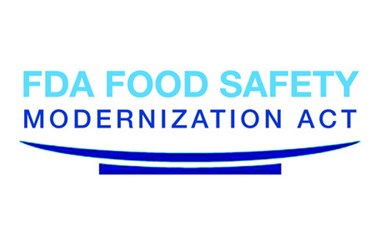Four Anticipated FSMA Rule Revisions Open For Further Public Comment
By Laurel Maloy, contributing writer, Food Online

The FDA’s history-making outreach to affected parties continues as revisions to four FSMA rules are proposed
On the morning of Sept 19, the FDA’s response to public comments resulted in publishing revisions to four proposed rules under. According to the FDA, the outpourings of public comments led to the realization that the rules needed to be targeted more specifically and provide for practical flexibility. This extraordinary approach to law making saw thousands of comments electronically submitted from stakeholders, farmers, processors, transporters, and others affected by the proposed food safety provisions.
Guest Column: The Reality Of FSMA: Is Your Business Prepared?
In light of the amended provisions to the proposed rules, the comment period will again be re-opened, even as the date for finalization set by the court looms. The new deadline for public comments is set for 75 days after publication in the Federal Register, which is expected to occur on Sept 29. The comment period is extended only on portions of the proposed rules with revised language; unrevised portions will go forward without further comment. The following four rules are up for additional review and public comment:
Produce Safety: Revisions include the definition of “very small businesses” and “small businesses.” This distinction is necessary in order to apply the monetary-value thresholds based upon the revised, produce-sales values for farm and/or farm “mixed-type” facilities. The definition of “farm” is being revised, as are the definitions for “covered activity,” “harvesting,” “holding,” and “packing” in regard to who will be subject to the new rules. Amended provisions also alter the microbial-quality standards for water used to grow produce, other than sprouts, ensuring FSMA’s standards are consistent with the Environmental Protection Agency’s (EPA’s). The FDA is withholding a final decision on the harvest-time interval for the application of raw manure while further research is being conducted. Also at issue is the FDA’s authority to withdraw a qualified exemption and the actions that must be taken in order to allow time for a facility to address the circumstances. The complete 151-page publication is expected to be published in the Federal Register on Sept 29, but is currently available in PDF format.
Tips For Complying With New Food Safety Regulations
Current Good Manufacturing Practice (CGMP) and Hazard Analysis Risk-Based Preventive Controls (HARPC) for Human Food: This rule is more succinctly called Preventive Controls for Human Foods. In order to align this rule with the Produce Safety rule, the same definitions and monetary thresholds will apply. This includes farms, small businesses, very small businesses, and those facilities that hold, harvest, pack, or participate in other covered activities. Distinctions are being clarified on what constitutes a “processed food” or produce, as in the instance of drying a product, such as raisins. Using constructs from Hazard Analysis and Critical Control Points (HACCP), some language will be edited, deleted, or more clearly defined, effectively applying the risk-based standards as required by HARPC. Targeted language is included regarding requirements for supplier controls, product testing, and environmental monitoring. Proposed language to address economically-motivated, intentional adulteration as part of a facility’s hazard analysis is also built-in. The costs and benefits are outlined on pages 14 and 15 of the PDF, the 180 page document is not expected to be published in the Federal Register until Sept 29.
Current Good Manufacturing Practice (CGMP) and Hazard Analysis Risk-Based Preventive Controls (HARPC) for Animal Food: Also known as Preventive Controls for Animal Foods, the recommended amendments here will ease the minds of beer brewers, who were concerned these rules would be cost-prohibitive. In short, those facilities already in compliance with Preventive Controls for Human Foods will not be required to implement additional controls for animal food when storing and distributing its by-products. Also, a facility engaged solely in the storage of already-packaged food for animals may be exempt from this FSMA rule. A table listing the Classification of Activities Conducted On Farms and Farm Mixed-Type Facilities can be found on pages 167 through 169 of this 170-page PDF.
Webinar: FSMA’s High-Risk Food Methodology
Foreign Supplier Verification Programs (FSVP) for Importers of Food for Humans and Animals: Basically, according to Michael Taylor, the Deputy Commissioner for Foods and Veterinary Medicine at the FDA, the two options of the original proposed rule will be incorporated into one “hybrid” option. Annual auditing will be required of those importers who do not have a well-documented, supply-chain-management system or if there is reason to believe serious harm or injury could result from a hazard. Less-frequent auditing will be permitted for those importers with a recognized and well-established, supply-chain-management system in place. Dated Sept 16, 2014, and expected to be published in the Federal Register on Sept 29, you can access the 98-page PDF version here.
The FDA is planning to host a public meeting on the proposed revisions on Nov 13, 2014, in College Park, MD. The details for this meeting are not yet available; however, you can submit comments at the Federal eRulemaking Portal, or tender written submissions to Division of Dockets Management (HFA-305), Food and Drug Administration, 5630 Fishers Lane, rm 1061, Rockville, MD 20852.
